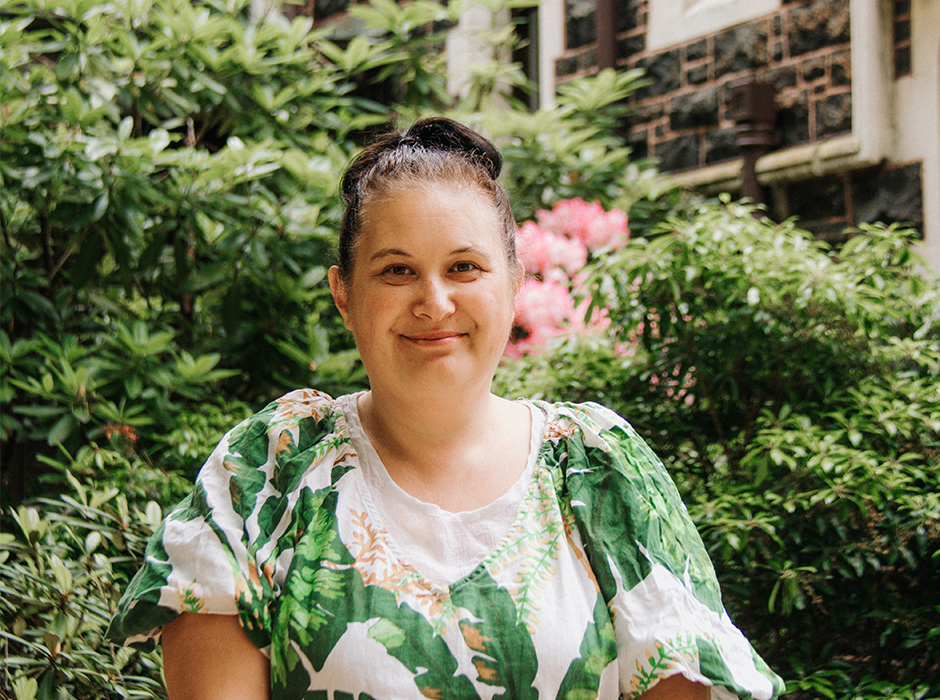
Associate Professor Justine Camp has been appointed the inaugural Pro-Vice-Chancellor Māori and plans to honour and grow the legacy of her forefathers by serving the kaimahi and tauira of the University of Otago.
Associate Professor Justine Camp (Kai Tahu, Kāti Māmoe, Waitaha) has a goal – to honour and grow the legacy of her forefathers.
For the newly appointed inaugural Associate Pro-Vice-Chancellor Māori, that means serving the people of Dunedin and University of Otago kaimahi and tauira in the same way distant ancestors and recent relatives have.
Justine says the origin of her deep sense of service goes back to her ancestors who signed the Treaty of Waitangi on 13 June 1840 at Otago Heads in Otago Harbour.
It is clear they had a strong connection to this land and cared about political and social justice in the same way she does, she says.
“Being born and raised in Dunedin, I want to keep up that duty and I’m eager to do it at a time when the University has undergone changes in leadership and stepped into Pae Tata, their new strategic direction.
“Our Māori tauira need to be celebrated and equipped so that their mana and wairua are not only kept intact but flourishes.”
She says the strategic refresh aligns with staff’s aspirations to be more Te Tiriti led and achieve tangible goals.
“Our Māori tauira need to be celebrated and equipped so that their mana and wairua are not only kept intact but flourishes,” Justine says.
Justine’s personal history with the University of Otago began with her first ever job – folding pamphlets in the Māori Liaison office at the age of 12.
She jokes she “started in the mailroom” and that, as a child, she would love going into the Clocktower basement to have tea and cookies with the staff there.
This means she’s periodically been involved with the University for about 40 years, largely because her mother – Emeritis Professor Khyla Rusell – was the University’s first Māori liaison officer and also contributed to establishing the Māori Centre.
“I whakapapa to all three marae [Puketeraki, Otakou and Moeraki] and would like to celebrate the history of our health and education stewards – it was these old girls that laid the foundation for our success.”
Justine is currently Associate Dean (Māori) of the Otago Medical School and the Health Sciences Division, and is part of the team in the Edgar Diabetes and Obesity Research Centre, which her mother also helped establish.
Her research in diabetes was inspired by an incident that happened to her father who had type one diabetes, as well as her grandfather and 14 of his siblings having type 2 diabetes.
She says he had been mowing the lawn when he fainted due to low blood sugar, leaving Justine with the impossible decision of needing to attend to him and also fetch her young daughter from school at the same time.
“In that moment I wondered how other whānau deal with issues like this and the challenges that come from having little support when you need it.
“This led me to interviewing many of them and putting together a ‘health compass’, which people can use to monitor different aspects of their healthcare and wellness.
“I also used the maramataka [lunar calendar] to determine whether a person’s hauora was enhancing or diminishing, identifying that mothers would often go into a diminishing, or low emotion, phase during a new moon.”
She says this research was incredibly helpful in illustrating to people that their lives are cyclical and encourages them to document their symptoms and take this data to their doctors to manage their healthcare.
Justine starts her new role in January 2025.
– Kōrero by the Division of Health Sciences Communications Adviser, Kelsey Swart.